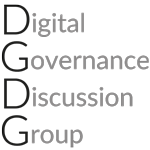By Byron Holland.
On September 22, the United Nations General Assembly adopted the Global Digital Compact (GDC), marking one of the most significant intergovernmental agreements on digital issues in the past two decades. Appended to the Pact for the Future, the GDC is a non-binding agreement that outlines a global governance framework for a wide range of digital issues, including internet governance and the Internet Governance Forum (IGF).
From an internet governance perspective, the final text of the GDC represents a compromise between Member States advocating for multistakeholder internet governance and the sustainability of the IGF and those pushing for more government oversight over critical internet resources and a weakening of the Forum.
Continue reading “What the Global Digital Compact Taught Us About Future Internet Governance Debates”